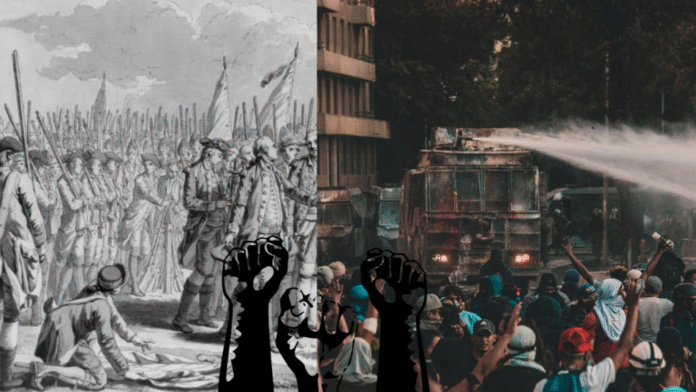History is filled with defining moments that have shaped the way we live today. From revolutions and wars to discoveries and movements, these events not only changed nations but also transformed societies, cultures, and human thinking. Below are some of the most significant historical events and their impact on society.
1. The Printing Press Revolution (1440)
Johannes Gutenberg’s invention of the printing press made books and knowledge accessible to ordinary people. This breakthrough encouraged literacy, spread new ideas, and played a key role in movements like the Renaissance and the Reformation.
Impact: Education expanded beyond the elite, leading to greater social awareness, cultural growth, and the foundation of modern communication.
2. The American Revolution (1775–1783)
The American Revolution gave birth to the United States of America and spread ideals of liberty and democracy. It inspired other nations to fight for independence and freedom.
Impact: The concept of self-rule and equal rights gained strength worldwide, influencing global politics and governance.
3. The Industrial Revolution (18th–19th Century)
The rise of factories, machines, and new technologies transformed economies, cities, and lifestyles. People moved from rural areas to urban centers in search of jobs.
Impact: While it improved productivity and living standards, it also created challenges such as labor exploitation, pollution, and class struggles—issues societies still address today.
4. World War II (1939–1945)
This global conflict reshaped political boundaries, ended colonial empires, and gave rise to the Cold War. The horrors of war also led to the establishment of the United Nations.
Impact: Nations began working toward peace, human rights became a global priority, and technological progress accelerated in medicine, aviation, and communication.
5. The Civil Rights Movement (1950s–1960s)
In the United States, this movement fought against racial segregation and inequality, led by figures like Martin Luther King Jr. Its message resonated across the world.
Impact: It brought legal and cultural changes, inspiring future generations to continue advocating for justice, equality, and human dignity.
6. The Fall of the Berlin Wall (1989)
The collapse of the Berlin Wall symbolized the end of the Cold War and the division between East and West. It was a turning point in international relations.
Impact: It opened the way for European unification, democracy in Eastern Europe, and greater global cooperation.
7. The Digital Revolution (Late 20th–21st Century)
The rapid rise of computers, the internet, and smartphones has connected the world like never before. Information is now available at our fingertips.
Impact: While it has improved communication, education, and business, it has also introduced challenges such as digital dependency, privacy concerns, and social isolation.
Final Thoughts
Historical events do more than mark moments in time—they shape the values, systems, and opportunities we live with today. By studying them, we understand how far society has come and how we can make better decisions for the future.

